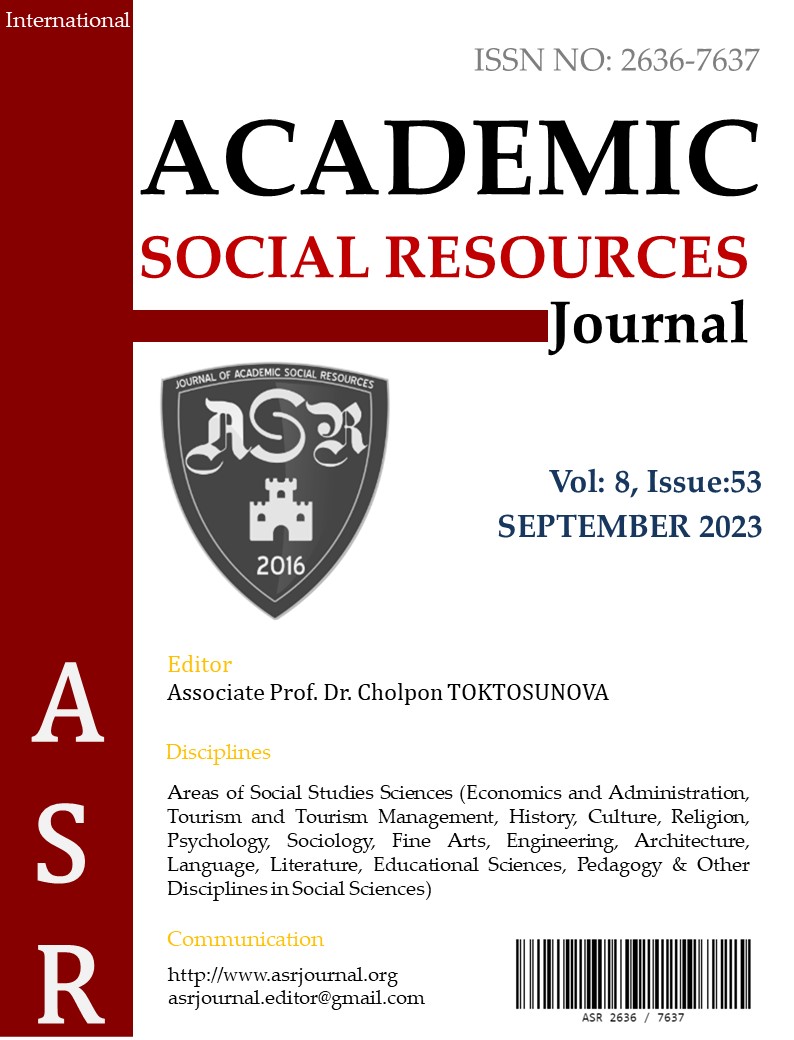Author :
Abstract
Günümüzde bir ülkenin kalkınmışlık düzeyini belirleyen en önemli faktörler o ülkede yaşayan bireylerin gelir, eğitim ve sağlık düzeyidir. Sağlık göstergelerinin temel belirleyicisi olan sağlık harcamaları ise ülkeler açısından gelişmişlik düzeylerine bağlı olarak farklılaşmaktadır. Sağlık harcamaları kısa dönemde bireyin ve toplumun sağlık düzeyini yükselten cari bir harcama niteliği taşırken, uzun dönemde beşeri sermaye stokunu artırarak ekonomik büyümeyi etkileyen yatırım harcaması niteliğindedir. Sağlık düzeyi yüksek bir toplum, nitelikli insan kaynağı olma yanında ekonomik büyüme/kalkınmada da ciddi öneme sahiptir. Dolayısıyla bu çalışmanın amacını, MINT ülkelerinde (Meksika, Endonezya, Nijerya ve Türkiye) 2000-2020 dönemi yıllık verilerini kullanılarak sağlık harcama türleri ile ekonomik büyüme ilişkisinin panel eşbütünleşme testleri ile araştırılması oluşturmaktadır. Yapılan tahminler sonucunda, MINT ülkelerinde sağlık harcamaları ile ekonomik büyüme arasında uzun dönemli bir ilişkinin olduğu bulgusu elde edilmiştir. Ayrıca panel genelinde toplam sağlık harcamalarının uzun dönem katsayısının istatistiksel olarak anlamlı, özel ve kamu sağlık harcamalarının uzun dönem katsayısının ise istatistiksel olarak anlamsız olduğu tespit edilmiştir. Buna göre, MINT ülkelerinde toplam sağlık harcamalarında meydana gelen %1’lik bir artış kişi başı geliri %0,9 arttırmaktadır.
Keywords
Abstract
Today, the most important factors that determine the level of development of a country are the income, education and health level of the individuals living in that country. Health expenditures, which are the main determinants of health indicators, differ depending on the level of development of countries. While health expenditures are a current expenditure that increases the health level of the individual and the society in the short term, it is an investment expenditure that affects economic growth by increasing the human capital stock in the long term. A society with a high level of health has a serious importance in economic growth/development as well as being a qualified human resource. Therefore, the aim of this study is to investigate the relationship between health expenditure types and economic growth with panel cointegration and panel causality tests using annual data for the 2000-2020 period in MINT countries (Mexico, Indonesia, Nigeria and Turkey). As a result of the estimations, it was found that there is a long-term relationship between health expenditures and economic growth in MINT countries. In addition, it has been determined that the long-term coefficient of total health expenditures is statistically significant, while the long-term coefficient of private and public health expenditures is statistically insignificant throughout the panel. Accordingly, a 1% increase in total health expenditures in MINT countries increases per capita income by 0,9%.





